WNET / UCH Urban Academy
“Exploring Powerful Ideas Inquiry-Based Teaching: Discussing a Teachers Role”
ENCOURAGING STUDENT VOICE
STUDENT:
So what happens with people who commit treason? Right now.
AVRAM BARLOWE:
Right now?
STUDENT:
Yeah right now.
AVRAM BARLOWE:
Today?
STUDENT:
Yeah.
AVRAM BARLOWE:
What happens with people who are convicted of treason?
STUDENT:
Like, do they get sentenced how long? It’s a felony, right?
AVRAM BARLOWE:
It’s more than a felony. Tr-treason, treason you could be executed for treason.
STUDENT:
Oh, okay. So and I feel, um, that all these people committed treason so why couldn’t they just be executed?
(in roundtable)
AVRAM BARLOWE:
The thing we see about student voice in all these clips are what the kids say drives the lessons. Right? Your questions are nothing if the kids don’t say things so that their comments and the framing of their comments and comparing of their comments, their response to each other comments- it’s, you know, that’s what drives the discussion as much as anything the teacher does. They’re reacting to the text based on things that they know, things that they’ve learned, um, things that they think. But they’re also analyzing at the same time and that’s the voice we want. We want the voice that, that is deeply personal but is also analytical.
(in class)
STUDENT:
We can say, “We think, we think, we think” but even when they were in the war and they were taking the black hostages in the South, nothing was done when they were being killed and put back into slavery so what makes us think that they’d do anything against these, um, racist attitudes in the country. Like, we’re not even saying that they emancipated the slaves because that’s what they wanted to do but as a, like a, as a war tactic or whatever. So, I don’t think its as important as we’re making it seem to everyone else.
AVRAM BARLOWE:
There’s two questions. Would it have been a good idea, in theory, to kill all of these people and the second question is would it have gotten any support in 1865?
(in roundtable)
ADAM GRUMBACH:
The way you framed the question is you took Saloul’s question and made it two questions-
AVRAM BARLOWE:
Yes.
ADAM GRUMBACH:
One: would it have made sense to execute everybody? And two: would it have been politically possible with some support for that kind of thing?
AVRAM BARLOWE:
I, you know, sometimes you can over do this but I wanted kids to sort of remember the first question even as she’s begging a second question.
ADAM GRUMBACH:
I also think it’s a – you differentiated the lesson in that moment. The first question, anybody can respond to. Is it morally right? Is it okay to kill everybody? And Ezra was mostly responding to that. And then the second ones were bringing around like what can you show, what can you use to show what wouldn’t have made sense or wouldn’t have been politically feasible.
AVRAM BARLOWE:
But again you know, what’s interesting is that my questions come from the kids co- We’re working together there. I think people, I think, you know, it’s a false notion to conceive of… teachers work is, you want, you know whats in their that you want to extract out and your quest is to just go in there and pull out what you want.
*** TAPE END ***
*** TRANSCRIPT END ***

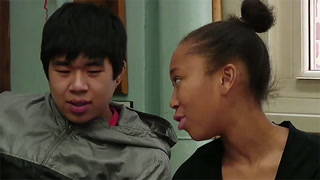
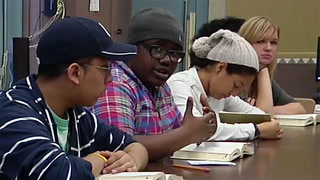
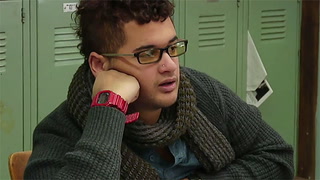
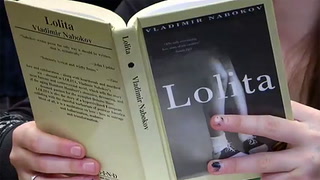
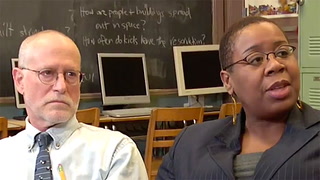
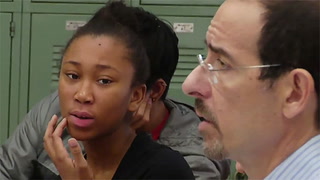
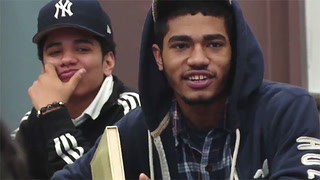
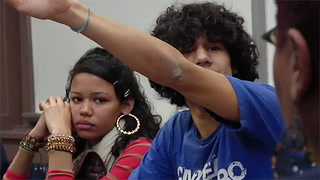
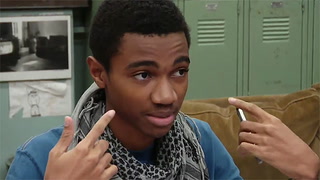
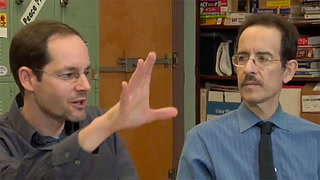
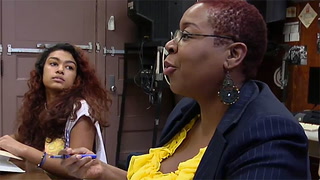
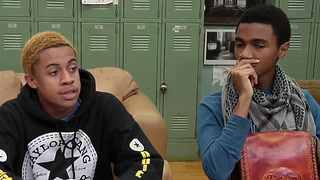








12 Comments
Vonetta Wideman Jan 21, 2017 8:33pm
Adam Hopson Mar 24, 2016 2:13pm
Ian Zamora Nov 20, 2015 11:18pm
Nancy Bethea Feb 22, 2015 3:31pm
Colo NESCO Nov 12, 2014 3:54pm